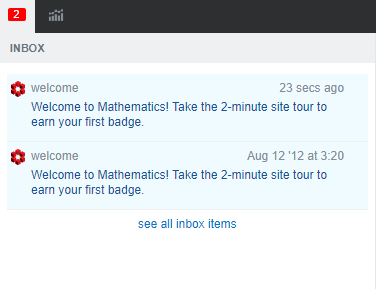In an answer to another question discussing possibilities how to decrease the number of off-topic questions1 it was mentioned that: Perhaps we should force a person to read the rules before posting the first question? By clicking some button "read and understood the rules".
Something similar was implemented on some other sites, I am aware of Stack Overflow and Mathematics. In both cases, the user who posts a question for the first time is shown How to ask page and only can proceed only after confirming that they have read the advice.
Do you think something like this would be useful for MathOverflow and could possibly help to get smaller number of posts which actually do not belong there?
If https://mathoverflow.net/questions/ask/advice is going to be shown to new users before the first question, are there some improvements to this page which might make it more effective? (Perhaps stating clearly at the beginning that this site is for research-level questions? This information is displayed on another page in the help center, but probably it might be worth including here, too.)
Are there some other possibilities what can be chosen to be displayed as the "welcome page" to the user asking the first question? (I am not really sure whether it is possible to use something different that "How to ask" page, but if some options are suggested and if this is seriously considered, I suppose the moderators can find out from SE staff whether it is possible.)
1Such questions are usually relatively quickly closed and downvoted - which means that eventually roomba takes care of them (or the question might be deleted even sooner by users with sufficient reputation). But still, having less such questions would mean less work for users who cast close votes or do close votes reviews. In the past some users complained about off-topic posts on the frontpage, for example: Can the clutter of obviously off-topic questions be removed faster?
In the comments some concerns were raised that this idea (or some variation thereof) could lead to some users losing the question they typed simply by clicking incorrect field.
@MattF., that seems like a great idea. The only concern I'd raise is: would the 'wrong' answer automatically trigger rejection of the post, or just a warning that it might not be appropriate? If the latter, then people might just ignore it as they would ToS. If the former, then good questions could be lost to people giving overly honest answers. -- LSpice
So I'd like to clarify that the proposal is to show How to ask page (or something similar) before the user starts typing their first question.
To check how this work on other sites, I created a completely new account on Mathematics. Immediately after creating an account, the invitation to view the tour was shown in my inbox. (However, this is easy to ignore. Still it is interesting that this was not shown when I created MathOverflow account - but perhaps a user gets this into inbox only for the first account they create...?)
Then I clicked on "Ask question" button and I was shown How to ask page:
At the bottom, the checkbox saying "thanks, I will keep these tips in mind when asking" was shown.
If I clicked on proceed, I was directed to the same page again. Only after checking the checkbox, clicking on proceed took me to the page where I enter the question.
When I tried this with an entirely new account on MathOverflow I was taken directly to https://mathoverflow.net/questions/ask - the system does not force me to read anything before that. (Of course, the same thing happens when I try to ask a question on MathOverflow while I am not logged in at all.)




